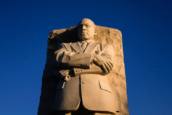
Situation in Greece more than an economic crisis
The situation in Greece is more than an economic crisis that the country faces alone, said government and church leaders in Athens to a delegation of ecumenical leaders from Europe and Africa on Monday, November 20.
The severe challenges facing Greece are only one part of a larger dilemma within Europe and the rest of the world. This reflects not only a potential economic catastrophe but an emerging moral and spiritual degradation reaching into the heart of the European Union and the current economic system.
Greece has a severe problem, Constantinos Tsiaras, the Greek deputy foreign ministry, said Monday morning to the ecumenical delegation which included the general secretaries of the World Council of Churches (WCC) and Conference of European Churches (CEC) and eight other church leaders.
While Greece may be at the centre of this problem, Tsiaras said, “Greece is not the whole problem.”
The problem is much deeper than just Greece, the minister said, adding that “Greece is trying hard during this period to avoid a situation that could be worse than what we have now.”
“We are not going to leave the economy to collapse,” he said. But, “the European Union has to show solidarity as a value of its existence.”
Tsiaras’ comments came at the opening of the two-day solidarity visit led by the WCC general secretary the Rev. Dr Olav Fykse Tveit and the CEC general secretary the Rev. Dr Guy Liagre. The visit also included an audience with Archbishop Ieronymos II of Athens and All Greece.
The archbishop pointed to a wider crisis and specifically spoke of a growing bitterness as Greeks are not only suffering from the reality of economic turmoil but there is now a negative characterisation of them in the media. “This cannot help things,” he said.
“The Greek are not thieves, they are not fraudulent, they are not lazy as represented in publications throughout Europe,” the archbishop said. “They are hardworking people of love, honour, hospitality, with a sense of dignity.”
As the sides move apart because of increasing differences of perception, he said, “flour needs to go through two stones to press it.”
“It is not just a Greek crisis but crisis on the other bank,” the archbishop said of the responsibility each must assume. “In this difficult moment the church is invited to lift up the souls of people and to restore their souls.”
Expressions of solidarity for Greece
“A time of crisis is a time for solidarity, unity and love and not a time to divide,” Tveit said in the meeting with Tsiaras, and he reiterated this in the discussion with Archbishop Ieronymos. “No crisis is only a crisis but it is also an opportunity.”
If the situation of Greece were merely economic, it could be tackled in time. However, an increasing divide between the two primary players in the crisis, Greece and Germany, is raising tensions, misunderstandings and challenging the very roots of the European Union while pushing the church to reassert its role.
“We really suffer with our friends,” Bishop Heinrich Bedford-Strohm of the Evangelical Lutheran Church in Bavaria said. “We are all one Europe.” At the same time he recognised the negative image of Greeks within German society and even the government.
“I plead for humility on the German side,” Bedford-Strohm said in discussions with the archbishop. He said that in recent celebrations of the national holiday commemorating German reunification, he recognised that Germany at one time received the compassion of the world, “given freedom after World War II when it did not deserve it or earn it.”
“I see a change in thinking on the part of the German politicians,” he said. “Your message is starting to be heard.”
Bedford-Strohm said that the leaders of the European Union need to return to the founding values of the union and asked the WCC and CEC to raise their voice. “They should address the European Parliament with a strong voice and say they are not in harmony with the founding principles.”
Later in the day, the delegation saw first-hand how complex the situation has become in Greece.
At one soup kitchen in downtown Athens which is sponsored by the Church of Greece, the Anglican Church and several African immigrant Pentecostal Churches, the line of some 1,000 people in need of food included Afghans, Syrians, North Africans. Marking a more recent change, one third of them were Greeks.
In one sense Greece has become the front door for migrants knocking on the door of Europe seeking a better life, security from conflict or political asylum. They come through Greece to the rest of Europe. Many times they don’t make it to the rest of Europe.
“I appeal for a continuation of the dialogue so we can try to understand the situation in which we live,” Liagre said toward the end of the day, expressing the hope that the church can bring a new approach to the crisis.




























































